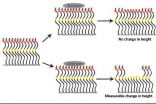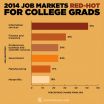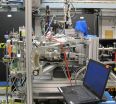(Press-News.org) BOSTON –– More women are having ovary-removing surgery as a cancer prevention measure, but many are often unaware of sexual or psychological side effects of the procedure. A new study by researchers at Dana-Farber Cancer Institute shows a half-day educational program can help successfully deal with these issues by educating women on how to address them.
The program taught women how to manage some of the physical and emotional difficulties that can follow ovary-removing surgery and helped many participants resume satisfying sexual activity and reduce feelings of anxiety and depression, the investigators found. The study, published today in the Journal of Sexual Medicine, underscores the need to inform women about the aftereffects of this type of surgery and, critically, let them know that such problems can be dealt with successfully.
"For women who inherit genetic mutations that put them at increased risk for ovarian cancer, oophorectomy – surgical removal of the ovaries – can sharply lower that risk. But the procedure can have potentially difficult side effects," said the study's first author, Sharon Bober, PhD, Founder and Director, Sexual Health Program at Dana-Farber. "Patients often experience problems such as vaginal dryness, which can make intercourse difficult or painful, a decrease in libido, a change in body image, and a loss of a sense of vitality or femininity. In this study, we sought to see whether an education and training program could improve sexual functioning and relieve distress in these patients."
The study involved 37 oophorectomy patients who carried mutations in the BRCA1 or BRCA2 genes, which predisposed them to developing breast or ovarian cancer. All attended a half-day educational session designed by Bober that taught them how to manage side effects of the procedure, improve their self-image, and practice relaxation techniques. That was followed by two sessions of telephone counseling.
At the start of the program and two months after its conclusion, participants completed questionnaires about their sexual and emotional well-being. They reported significant improvement in sexual health, an increase in sexual desire and satisfaction, and a decrease in pain associated with intercourse. They also reported feeling less anxiety.
"We found that in addition to acquiring new skills and knowledge, participants found it helpful to be in a setting with others who have gone through a similar experience," Bober remarked. "We hope to study whether this approach can be effective on a larger scale, perhaps by engaging patients in a Web-based program."
INFORMATION:
Co-authors of the study are Christopher J. Recklitis, PhD, MPH, Jennifer Bakan, BA, Judy E. Garber, MD, MPH, and Andrea Farkas Patenaude, PhD, all of Dana-Farber.
The research was supported by a grant from the National Cancer Institute (1 R03 CA153815-01A1).
About Dana-Farber Cancer Institute
Dana-Farber Cancer Institute, a principal teaching affiliate of Harvard Medical School, is world renowned for its leadership in adult and pediatric cancer treatment and research. Designated as a comprehensive cancer center by the National Cancer Institute (NCI), it is one of the largest recipients among independent hospitals of NCI and National Institutes of Health grant funding. For more information, go to http://www.dana-farber.org.
Side effects of cancer prevention surgery can be helped with education program
Educational program showed improvement in sexual and mental health
2014-10-14
ELSE PRESS RELEASES FROM THIS DATE:
Scientists create new protein-based material with some nerve
2014-10-14
Berkeley — Scientists at the University of California, Berkeley, have taken proteins from nerve cells and used them to create a "smart" material that is extremely sensitive to its environment. This marriage of materials science and biology could give birth to a flexible, sensitive coating that is easy and cheap to manufacture in large quantities.
The work, to be published Tuesday, Oct. 14, in the journal Nature Communications, could lead to new types of biological sensors, flow valves and controlled drug release systems, the researchers said. Biomedical applications ...
Feeling guilty or ashamed? Think about your emotions before you shop
2014-10-14
Suppose you grabbed a few cookies before heading out to the grocery store and start to feel guilty or ashamed about breaking your diet. According to a new study in the Journal of Consumer Research, feeling guilty might find you comparing calories in different cartons of ice cream. Feeling ashamed might keep you from buying any ice cream in the first place.
"We examined the emotions of guilt and shame and found that when consumers feel guilty, they tend to focus on concrete details at the expense of the bigger picture. On the other hand, when consumers feel ashamed, they ...
Marketing an innovative new product? An exciting product launch could hurt sales
2014-10-14
Should every successful product launch involve some sort of dazzling spectacle? A new study in the Journal of Consumer Research tells us that this might be a great way to market an upgrade, but a flashy launch could backfire if a new product is truly innovative.
"The accepted wisdom is that consumers get excited about new and unique products they cannot immediately understand. However, these feelings of excitement can quickly change to tension and anxiety if we can't ultimately make sense of what a product does, especially if we are in a stimulating retail environment," ...
Jobs plentiful for college grads
2014-10-14
EAST LANSING, Mich. — The job market for new college graduates is red hot.
After several years of modest growth, hiring is expected to jump a whopping 16 percent for newly minted degree-holders in 2014-15, according to key findings from Recruiting Trends. The annual survey, by Michigan State University economist Phil Gardner, is the nation's largest with nearly 5,700 companies responding.
"Employers are recruiting new college graduates at levels not seen since the dot-com frenzy of 1999-2000," said Gardner, director of MSU's Collegiate Employment Research Institute. ...
New light on the 'split peak' of alcohols
2014-10-14
WASHINGTON D.C., October 14, 2014 -- For scientists probing the electronic structure of materials using a relatively new technique called resonant inelastic soft X-ray scattering (RIXS) in the last few years, a persistent question has been how to account for "split peak" spectra seen in some hydrogen-bonded materials.
In RIXS, low-energy X-rays from synchrotron or X-ray free-electron laser light sources scatter off molecules within the studied material. If those molecules include light elements, such as the -OH group in alcohols, the complex spectra RIXS produces are ...
Protein found in insect blood that helps power pests' immune responses
2014-10-14
MANHATTAN, Kansas — Pest insects may be sickened to learn to that researchers at Kansas State University have discovered a genetic mechanism that helps compromise their immune system.
Michael Kanost, university distinguished professor of biochemistry and molecular biophysics, led a study by Kansas State University researchers that looked at how protein molecules in the blood of insects function in insects' immune system. Insects use proteins that bind to the surface of pathogens to detect infections in their body.
"For example, when a mosquito transmits a pathogen ...
The Costco effect: Do consumers buy less variety at bigger stores?
2014-10-14
Do consumers make the same choices when products such as beer, soft drinks, or candy bars are sold individually or in bundles? According to a new study in the Journal of Consumer Research, consumers purchase a greater variety of products when they are packaged individually rather than bundled together.
"When consumers choose multiple products, they are influenced by the mere mechanics of choosing, regardless of their product preference. Consumers are more likely to seek variety when choosing from single rather than bundled products," write authors Mauricio Mittelman (Universidad ...
Study exposes bias in transportation system design
2014-10-14
DENVER (Oct. 14, 2014) – America's streets are designed and evaluated with a an inherent bias toward the needs of motor vehicles, ignoring those of bicyclists, pedestrians, and public transit users, according to a new study co-authored by Wesley Marshall of the University of Colorado Denver.
"The most common way to measure transportation performance is with the level-of-service standard," said Marshall, PhD, PE, assistant professor of civil engineering at the CU Denver College of Engineering and Applied Science, the top public research university in Denver. "But ...
Defective gene renders diarrhoea vaccine ineffective
2014-10-14
Every year rotavirus causes half a million diarrhoea-related deaths amongst children in developing countries. Existing vaccines provide poor protection. The reason could be a widespread genetic resistance amongst children, according to virologists at Linköping University.
Acute diarrhoeal illnesses cause nearly one-fifth of all child deaths in developing countries. The most common cause is rotavirus. Improved sanitation and hygiene have had a limited effect on the spread of the illness. Today, vaccination is considered the most important method for reducing mortality. ...
Common gene variants linked to delayed healing of bone fractures
2014-10-14
Slow-healing or non-healing bone fractures in otherwise healthy people may be caused by gene variants that are common in the population, according to Penn State College of Medicine researchers.
"We found associations between certain gene polymorphisms and delayed fracture healing in a sample of patients," said J. Spence Reid, professor of orthopaedics and rehabilitation. "Our study was preliminary but it demonstrated the feasibility of a larger one, which we're now working to set up."
The identification of gene variants that delay fracture healing could lead to screening ...
LAST 30 PRESS RELEASES:
Cal Poly’s fifth Climate Solutions Now conference to take place Feb. 23-27
Mask-wearing during COVID-19 linked to reduced air pollution–triggered heart attack risk in Japan
Achieving cross-coupling reactions of fatty amide reduction radicals via iridium-photorelay catalysis and other strategies
Shorter may be sweeter: Study finds 15-second health ads can curb junk food cravings
Family relationships identified in Stone Age graves on Gotland
Effectiveness of exercise to ease osteoarthritis symptoms likely minimal and transient
Cost of copper must rise double to meet basic copper needs
A gel for wounds that won’t heal
Iron, carbon, and the art of toxic cleanup
Organic soil amendments work together to help sandy soils hold water longer, study finds
Hidden carbon in mangrove soils may play a larger role in climate regulation than previously thought
Weight-loss wonder pills prompt scrutiny of key ingredient
Nonprofit leader Diane Dodge to receive 2026 Penn Nursing Renfield Foundation Award for Global Women’s Health
Maternal smoking during pregnancy may be linked to higher blood pressure in children, NIH study finds
New Lund model aims to shorten the path to life-saving cell and gene therapies
Researchers create ultra-stretchable, liquid-repellent materials via laser ablation
Combining AI with OCT shows potential for detecting lipid-rich plaques in coronary arteries
SeaCast revolutionizes Mediterranean Sea forecasting with AI-powered speed and accuracy
JMIR Publications’ JMIR Bioinformatics and Biotechnology invites submissions on Bridging Data, AI, and Innovation to Transform Health
Honey bees navigate more precisely than previously thought
Air pollution may directly contribute to Alzheimer’s disease
Study finds early imaging after pediatric UTIs may do more harm than good
UC San Diego Health joins national research for maternal-fetal care
New biomarker predicts chemotherapy response in triple-negative breast cancer
Treatment algorithms featured in Brain Trauma Foundation’s update of guidelines for care of patients with penetrating traumatic brain injury
Over 40% of musicians experience tinnitus; hearing loss and hyperacusis also significantly elevated
Artificial intelligence predicts colorectal cancer risk in ulcerative colitis patients
Mayo Clinic installs first magnetic nanoparticle hyperthermia system for cancer research in the US
Calibr-Skaggs and Kainomyx launch collaboration to pioneer novel malaria treatments
JAX-NYSCF Collaborative and GSK announce collaboration to advance translational models for neurodegenerative disease research
[Press-News.org] Side effects of cancer prevention surgery can be helped with education programEducational program showed improvement in sexual and mental health



